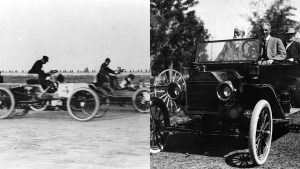JetBlue Airlines Is Trying To Dominate Low-Cost Travel, Now The Government Is Suing Them
JetBlue acquired Spirit Airlines, and now the US government is suing the airline on grounds of antitrust.
This article is more than 2 years old

JetBlue’s attempt to buy up Spirit airlines for $3.8 billion has hit a major pocket of turbulence in the form of the Biden Administration filing an anti-trust lawsuit to block the merger. The Federal government is suing on the grounds that consolidating these two airlines will eliminate the biggest ultra-low-fare competitor airline, despite JetBlue telling the public otherwise. The Department of Justice is asserting that by combining these two airlines will drive up the price of fares across the industry.
JetBlue is refuting these claims by the Biden Administration and has been preparing for this lawsuit making its defense based on the merger will harbor more competition in the market against the big four, American, Delta, Southwest, and United. The AP quoted JetBlue CEO Robin Hayes as saying, “We believe the DOJ has got it wrong on the law here and misses the point that this merger will create a national low-fare, a high-quality competitor to the Big Four carriers which — thanks to their own DOJ-approved mergers — control about 80% of the U.S. market.”
The combination of Spirit and JetBlue would have them in control of 9 percent of the domestic air-travel market which is a lot less than the 80 percent controlled by the big four. The last time the Justice Department attempted to block another megadeal was back in 2013 when they sued to stop American Airlines from merging with US Airways. Ultimately the deal went through and was settled out of court under the agreement that American Airlines give up a certain number of gates at some major airports around the country.
Prior to that lawsuit the DOJ didn’t flinch when Delta bought Northwest, united bought Continental, or when Southwest merged with AirTran. However, there are some nuances in this situation that differ from those past mergers, with the biggest difference being that those airlines that were absorbed were on the verge of bankruptcy and on their way out of business. That is not the case for Spirit airlines, they currently are a major player in the ultra-low-fare market.
Initially, a deal to sell Spirit airlines to another ultra-low-fare competitor Frontier airlines was agreed upon and before it had the chance to move forward JetBlue swooped in and torpedoed that deal. JetBlue outbid Frontier, and the Spirit shareholders approved that deal since it was going to put more money in the investor’s pockets. At the time Frontier CEO Barry Biffle argued that federal regulators would block a deal between JetBlue and Spirit and it appears that he was right.
The role that Spirit and Frontier airlines play in the domestic air travel market is vitally crucial by providing a low-cost option to consumers that may not be able to afford one of the bigger carriers. They help bring balance to the market. Without those budget carriers competing it would allow the bigger carriers to bump up their prices knowing if consumers wanted to travel, they would have no other option but to pay the larger fares.
That is what is concerning the Biden Administration as they have taken an aggressive stance against these megadeal mergers. According to the AP, “The lawsuit is the latest by the Biden administration to seek to block mergers in industries including health care, sugar refining, video gaming, and publishing. It has already lost the healthcare and sugar battles.” New York, Massachusetts, and the District of Colombia have joined the federal lawsuit and Florida has dropped their review of the case due to JetBlue negotiating expanded flight schedules to Fort Lauderdale, Orlando, and other airports in the state.




